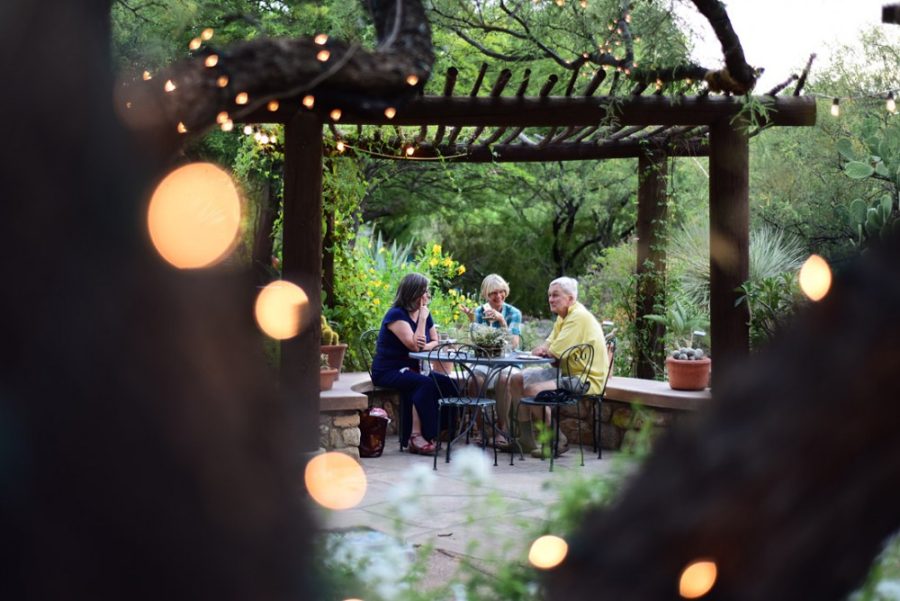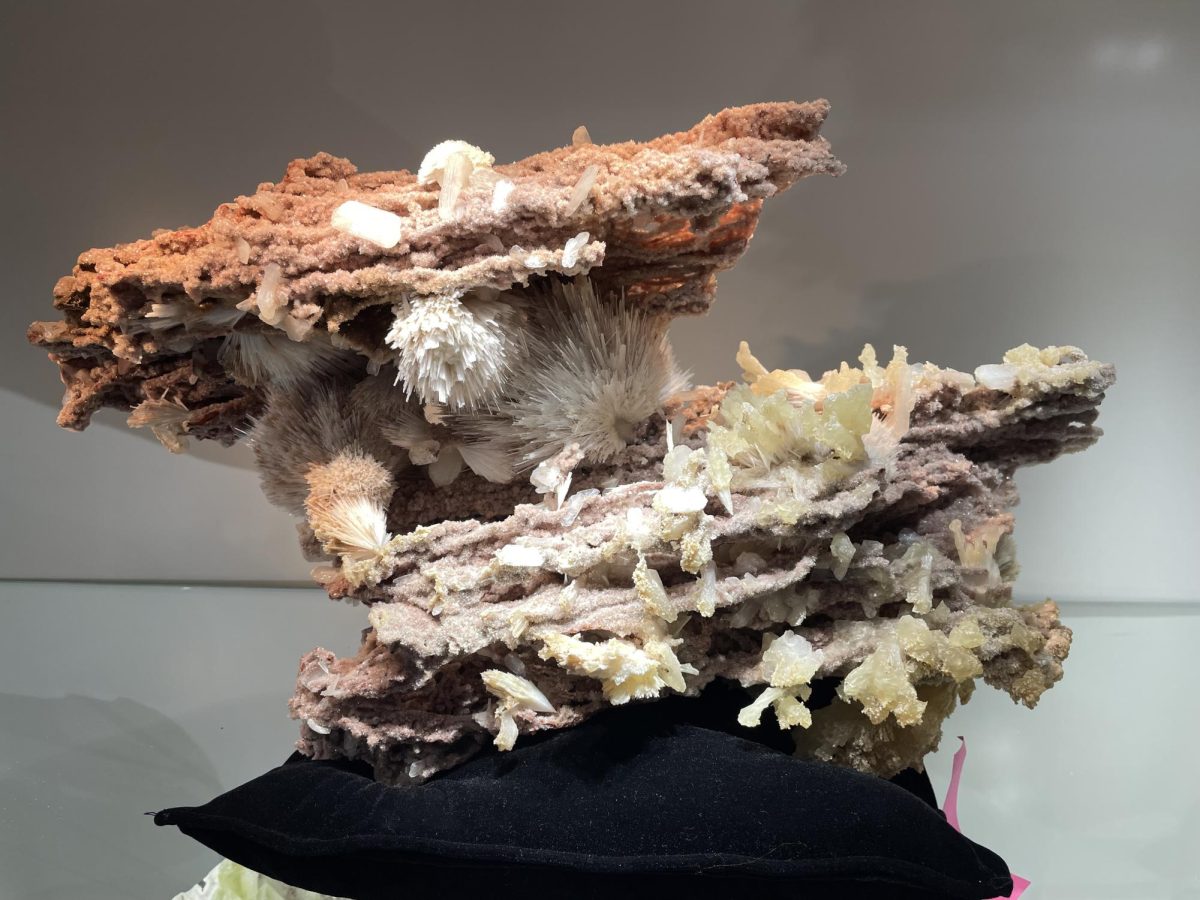On a warm and breezy Thursday evening in Tucson at a café nestled among the trees, Tucson Botanical Gardens plays host to the indulgence of good food and nature.
Twilight Thursdays are three-course, pre-set dinners at $20 per person. Dessert and beverages are at a separate cost, and if you bring your own wine or beer, they supply the glasses. Available weekly for the rest of the summer, and with a menu that changes every week, Café Botanica is open from 5-8 p.m., leaving gusts relaxed and full of quality food.
The small, hidden café is a quaint addition to the expansive gardens. Engulfed by greenery, diners are transported to a whole other world, right in the middle of the American Southwest.
This past week’s meal started with pan-seared Queso Fresco flambéed with tequila, served with house-made toasts and a wedge of lime as an appetizer, finished off with their Summer Tomatillo and Cucumber Gazpacho. For the entrée, diners were given the choice of either the Bótanica Tamale Pie with hand-made Masa Botanical Garden Cured Olives and Double Check Ranch Shredded Beef topped with a rustic Ranchero Sauce, or stuffed, braised Sleeping Frog Farm Kale with butternut squash, Ramona Farms Chick Peas drizzled with tarragon pesto crema.
Inspired by the local and regional cuisine, owner, caterer and chef Kristine Jensen thought up each detailed menu item produced daily by chefs John Gallaher and Brian Hagan. The café not only has delicious eats, but also homemade drinks and syrups from native plants like the prickly pear cactus.
Jensen describes her food as seasonal, imaginative and delicious. Many components of her recipes come directly from the Tucson Botanical Gardens and local businesses like Sleeping Frog Farms, Double Check Ranch and Ramona Farms.
For example, a Tucson couple brings in all different kinds of citrus, Jensen noted—things like kumquats, lemons and oranges, among others, which they barter with. The couple is paid per pound for their produce and eats at the café three to four times a week.
Jensen noted that being able to use small vendors instead of larger agri-businesses, like with her catering company, proved to be more suitable to a café, where new concoctions go straight from the kitchen to eager eaters.
The café and gardens were built and thrive on the grounds of a former Tucson family. The Porter family was involved with gardening and sustainability and left a legacy filled with everything earthy.
Tucson Botanical Gardens is a section 501(c)3 nonprofit group that advocates for responsible and appropriate plant and water use in a desert environment. With education classes and exhibits, attendees and members learn the importance of taking care of the local environment; the way Bernice Porter would have wanted it.
Bernice Porter was a woman who was dedicated to creating a garden that doubled as both something appealing to look at and as a community center that educated the public about local flora and ways of cultivation.
She and her husband, Rutger, raised a family, owned a nursery business called Desert Gardens Nursery and were active Tucsonans. Of the original combination of Mediterranean, native, and other various plants installed at the gardens, many survived and blossomed into what garden attendees see today.
After Rutger passed away, Bernice deeded the grounds to the city of Tucson, which in turn passed a resolution in 1974 merging Tucson Botanical Gardens and the Porter grounds to be used for a public horticultural oasis, botanical garden, bird haven and educational center.
The Porter’s family house was renovated and turned into a library, an art gallery and office spaces for current Tucson Botanical Garden administration.
By maintaining forethought to teach awareness of the environment, the Porters helped preserve the history of Tucson’s gardening practices, noted Melissa D’Auria, director of marketing and communications for Tucson Botanical Gardens.
“People just feel really special when they’re here,” D’Auria said.
For nature goers and those in search of a peaceful place for a picnic, the gardens are open weekdays from 7:30 a.m. to 4:30 p.m. and weekends from 6:30 a.m. to 4:30 p.m. to both members and the general public.
Until August, entrance fees are $9 for adults, $8 for military, seniors and students, and $5 for children ages 4-12.
As the sun descends over wholesome fare and twilight takes over, Jensen simply puts it, “We want people to come, eat and have a great meal.”









